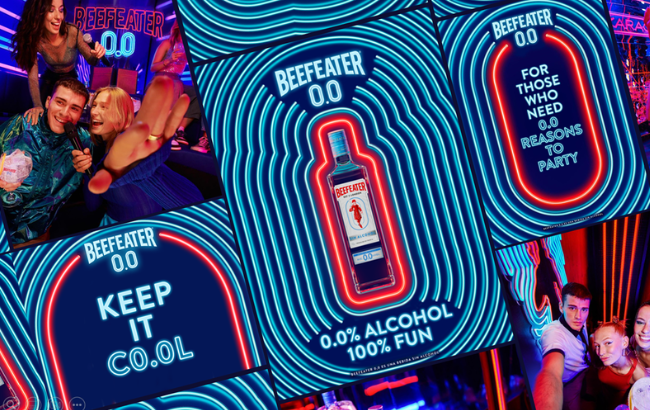Pernod plans zero-ABV expansion
Beefeater owner Pernod Ricard will create a “strong multi-category portfolio” in the alcohol-free sector, according to the division’s head of marketing.

Solène Marchand, head of marketing for non-alcoholic at Paris-based Pernod Ricard, said no-alcohol would be a big focus for the group in the future, both from a global and long-term perspective, “based on our insights and tests”. She noted that the category is “very gin-focused” and confirmed that the group is “working on having a strong multi-category portfolio”.
Pernod Ricard established a division dedicated to the no-and-low category in 2022 and created a research and development hub for the sector in the south of France with a specific production line for non-alcoholic ‘spirits’. “The production line will help us be able to go big in terms of volumes to produce for global expansion,” Marchand said.
In the past year, Marchand cited volume growth of 60% for the group’s alcohol-free portfolio, with the “strongest traction” coming from non-alcoholic ‘spirits’.
The company has several alcohol-free products in its portfolio including non-alcoholic ‘spirit’ Ceder’s, Seagram’s 0.0%, non-alcoholic wines from Campo Viejo and Jacob’s Creek, and regional brands such as ready-to-drink (RTD) apéritif Suze Tonic 0%.
The company’s recent launch, Beefeater 0.0%, was the first line extension from its portfolio of strategic international brands. The expression, which debuted in Spain, was created following two to three years in development and after experimenting with more than 150 recipes, Marchand said.
Spain is a “very big non-alc market” said Marchand, as consumers are “very tuned into moderation” and alcohol alternatives. Pernod Ricard “tested the market” with Seagram’s 0.0% last January. After Beefeater 0.0%’s debut in Spain, “the idea is to very quickly go into a global expansion”, she added.
The Beefeater brand is “going to be one of the strongest in terms of portfolio options for moderation”, Marchand noted, with the range also including the lower-ABV Beefeater Light. However, the focus will be on promoting the alcohol-free expression in the year ahead.
Market potential
“What’s interesting is that the big non-alc ‘spirits’ markets are actually big spirits markets,” said Marchand on market opportunities for the category, as consumers “understand how to drink a spirit, how to mix it and how to make a cocktail”.
The French company is targeting major spirits markets, including the UK and US, as well as European countries such as Spain, Germany and France.
She hasn’t ruled out future alcohol-free line extensions for other major brands in the portfolio, with a “strong innovation pipeline” planned. “We’ll definitely have this large multi-category portfolio that will be part brand extension and part new-to-world brands,” she added. The latter refers to brands directly created as non-alcoholic offerings.
She explained: “Some consumers are interested in having a brand that has nothing to do with an alcoholic brand. And on the other side, there’s a large part of the population that is interested in finding a brand that they know and love, and continue using that brand in the moments when they’re moderating. There’s a demand for both of these products.”
On whether the company is interested in alcohol-free RTDs, Marchand said “it’s definitely something we’re looking into” as there’s a “big traction on RTDs in general”.
“The portfolio vision that we have – we want it to be multi-category. It is definitely going to be including different types of format,” she confirmed. It will also be dependent on the brand, she noted.
“There’s a big advantage to having 0% RTDs,” she continued. “Because we’ve seen that tasting and sampling is crucial for the non-alc ‘spirits’ category. It’s a very new category.
“People need to be convinced by the taste first, and then they’ll talk about it and become brand ambassadors. That’s what we’ve seen in markets where we’ve focused on sampling first, before massive communications or marketing campaigns. Getting the product into people’s hands is crucial for this category and that’s where the RTD can be a big help.”
Related news
Chivas Brothers CEO takes on Pernod EVP role
